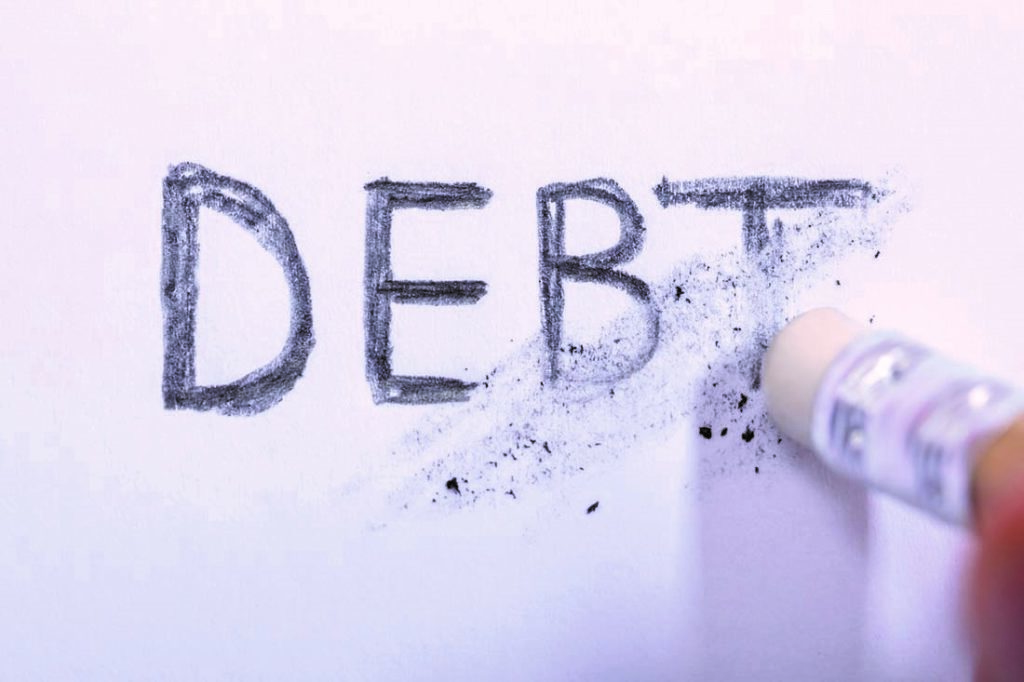Money matters are a critical but often overlooked part of addiction recovery. By Veronica L. Holyfield Living a full life in recovery means taking a deep dive into...
Money matters are a critical but often overlooked part of addiction recovery.
By Veronica L. Holyfield
Living a full life in recovery means taking a deep dive into honesty and engaging in a thorough cleanup of many aspects of one’s experience. If you were to look in the rearview mirror at a life of active addiction, you’d see a path of destruction and avoidance the sober version of you must piece back together. Not only do people find the need to get sober from substances, many discover they must get back to a kind of cleanliness when it comes to money. Financial sobriety, involves examining patterns and behaviors folks have with money that are no longer serving them, and healing their relationship with their finances.
A Step-by-Step Process
The first step on the road to financial sobriety to is be honest about your relationship with money. People who have never talked about their financial woes can find it hard to own up when it comes to their debt, spending and income-to-output ratio. While this may give rise to feelings of humiliation or shame, experts in the industry have heard it all, and will take a compassionate approach in offering support, services and resources to provide relief.
When we start to understand why we are where we are, we can give ourselves a bit of grace.
The biggest piece of the puzzle is to gain an understanding of how one’s patterns and relationships with money developed. As with any form of addiction, that means looking at family history. When did you first encounter money? Did those who raised you have a healthy relationship with it? What patterns presented themselves early on that carried into adult life and your current situation? As these questions are explored, folks find it easier to let go of the shame of mismanagement, and realize money troubles often stem from a long lineage of financial experiences.
Getting Financially Sober
Once someone finds freedom from active addiction to drugs or alcohol, there’s often a transference of addiction—people turn to both food and overspending as a way to deal with the squirreled mind in early recovery. Having steps in place and a clear road to support sobriety are key when you’re looking to get clean in all areas of your life.
While many may be dealing with money problems that arise out of substance misuse, some find spending itself is their true drug of choice. Groups like Debtors Anonymous can provide emotional support and community, and some may want to reach financial peace with money outside of the 12-step model.
Finances can be seriously compromised in addiction. Making a plan is one key to recovery.
The COVID Effect
The stress and burnout caused by the COVID-19 pandemic magnified money issues, or created new ones for hosts of people. Boredom shopping online had been an issue before the pandemic, but the fear and uncertainty brought on by the coronavirus amplified the problem. As people worked from home, with sites like Amazon just a click away and Facebook and Instagram ads a constant social media presence, overspending got easier and more appealing than ever. Because people were at home, they wanted their space to feel good. Then there was that piece of, ‘Oh, I’m in a pandemic, and I don’t feel safe, and if I buy stuff, that’s going to make me feel better.
Start With a Simple Plan
Facing the mountain of financial dismay may feel daunting, but you can regain power over money by making it clear what you want from it. The energy flow that comes from starting to assume control, through intentional spending and saving, begins to feel good and even surpasses the high that overspending might once have brought.
“When you don’t have that plan, money doesn’t know what to do, and it feels really overwhelming,” Linda Parmar says. “Keeping it as simple as possible when you’re first starting out is key.”
Coming up with a spending plan—she prefers that term, rather than “budget”—can at first feel restrictive and scary. But if it’s seen as a choice rather than a requirement, the pressure can be eased.
Ultimately it’s about getting to a place of peace in one’s heart about money, spending, lifestyle and supportive sobriety. “My biggest message is that you’re not alone in this experience, and it’s never too late to start.”




























